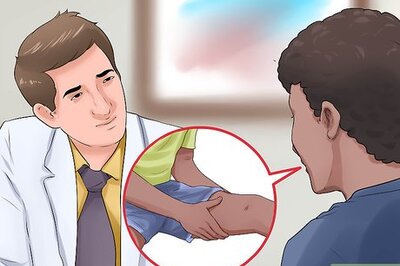
views
Copenhagen: Chloroquine, an efficacious old drug, is once again beginning to work against malaria, one of the most widespread scourges in the world. Scientists and doctors fear that the malaria parasite will develop resistance to the current frontline treatment against malaria: Artemisinin-based Combination Therapies (ACTs). Resistance (to drugs) monitoring at the University of Copenhagen shows that in several African countries, malaria parasites are succumbing to chloroquine, the American Journal of Tropical Medicine and Hygiene reports.
"Seventy percent of the malaria parasites we found in Senegal are reacting once again to chloroquine," explains Michael Alifrangis, associate professor at the Centre for Medical Parasitology at the University of Copenhagen. "This is a trend we have also seen in Tanzania and Mozambique, and which other researchers have found in Malawi," says Alifrangias, according to a Copenhagen statement.
"Our choice of drugs against malaria is limited and related, so when the malaria parasite once again reacts to a substance, it influences several treatment methods," adds Alifrangias. He and Magatte Ndiaye, doctoral student at Universite Cheikh Anta Diop in Senegal, are keeping an eye on the malaria parasite's sensitivity to drugs by analyzing the parasites' DNA.
"Chloroquine costs only 25 US cents for a four-day cure, while the current and corresponding ACTs cost two dollars," explains Ib Bygbjerg, professor at Copenhagen. "Chloroquine was a fantastic malaria drug that lasted for 50 years. However, it was misused for malaria prevention and ordinary fever, and even mixed with cooking salt, so it can come as no surprise that the malaria parasite became resistant to the active ingredient," says Bygbjerg.

















Comments
0 comment